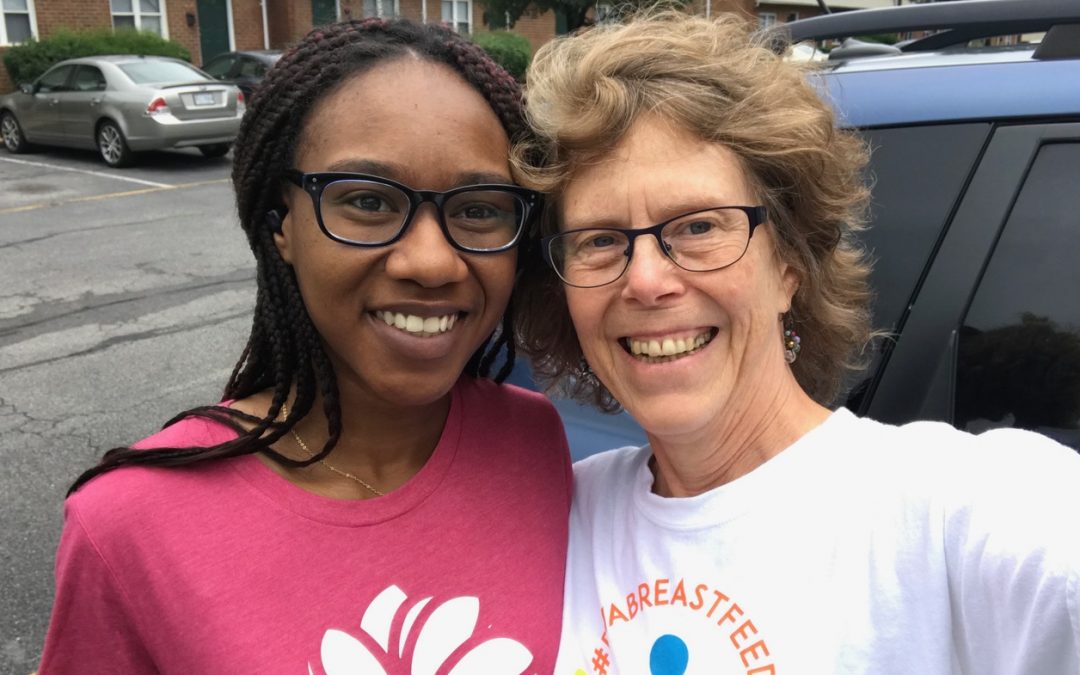On June 13 – 15, Leslie Lytle, Executive Director of Nurture and Coordinator of our #RVAbreastfeeds Healthy Communities Action Team, and Shakeya Lewis, #RVAbreastfeeds Social Media Manager and resident Certified Lactation Counselor, attended the Ninth National Breastfeeding Conference and Convening. Our attendance was supported through a grant from the Virginia Foundation for Healthy Youth. Also attending were over 300 lactation support professionals, advocates, and researchers from across the country. Below are some highlights from each or our perspectives. We hope you find inspiration in these reflections and links provided in this blog post. The full program of the Ninth National Breastfeeding Conference and Convening may be found here. Click here for a link to USBC’s Strategic Framework.
Shakeya’s Reflection:
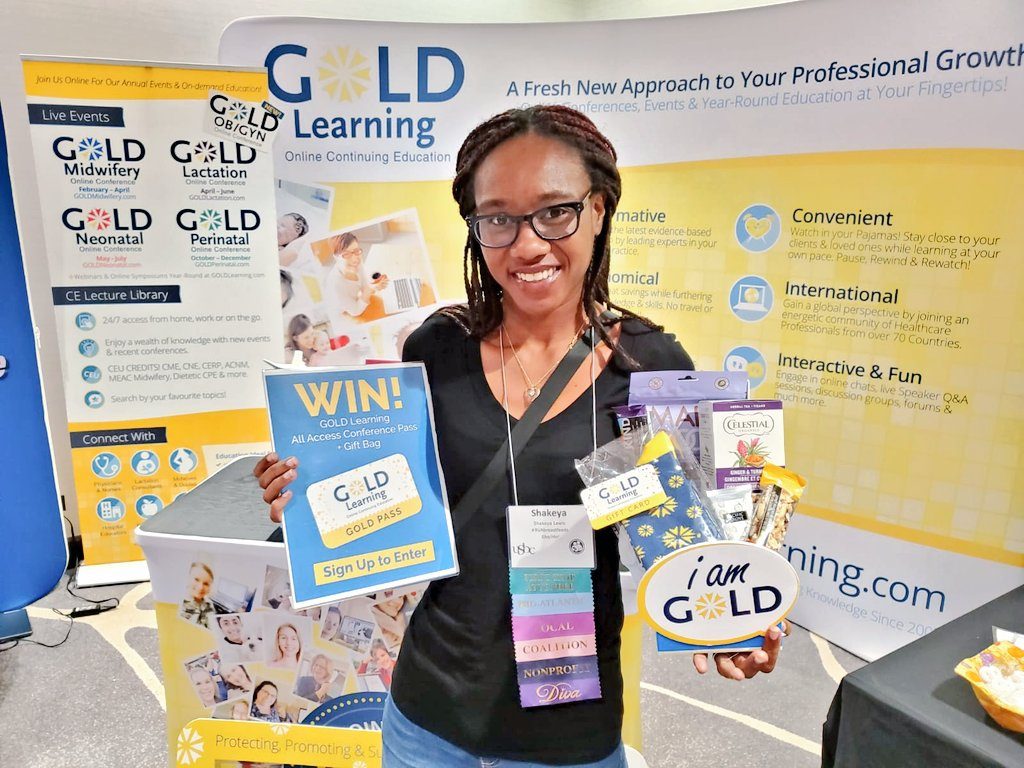
While at the conference, Shakeya Lewis won a scholarship to the on-line Gold Lactation Conference.
The Ninth National Breastfeeding Conference and Convening turned out to not only be a chance to learn how to further support breastfeeding, but a time of fellowship, learning and sharing. This was my first time attending and I had no clue what to expect. It blew me away. It has been a couple of weeks, and I am still slightly overwhelmed by all the information I received and people I met. Here are some things that were the most memorable to me during the conference.
- The conference theme this year was “Taking Equity from Theory to Practice: Advancing Inclusive and Collaborative Breastfeeding Support” with a large focus on further implementing the Surgeon General’s call to action for breastfeeding support. The theme of equity was apparent, and everyone appeared to feel comfortable and welcome, even with different opinions and views.
- Charity Blackwell opened the conference with a poem titled “Soccer and Poetry“, which highlighted resilience, and finding your outlet even when you feel like you don’t have one. This spoke volumes to the conference, and myself. Because you have to always understand that pushing through obstacles and making your way won’t be easy, but with an ally or outlet, like poetry, you can make it through.
- Different groups such as the LGBTQ community, Latinx people, African-Americans, and white people were able to attend their own identity group sessions, come together for personal meetings, and express their roles and concerns in this field, while having the understanding that it was a safe space to address anything.
- The format of the conference was mostly whole group sessions, along with two breakout sessions and the aforementioned identity group meetings. The first breakout session I attended was titled “Addressing Barriers to Access,” which highlighted how black women are less likely to be offered donor milk, and more likely to decline its use. This was surprising to me based on our infant mortality rates, but miseducation plays a large role here. It also touched on the use of cell phones and texts by peer counselors to maximize contact with their clients, and how well that can work. Personally, these results were slightly skewed to me based on the fact that there was financial compensation for the participants.
The second breakout session was titled “Breastfeeding in African American Communities,” and spoke about the disproportionate breastfeeding rates in our community, as well as the health disparities in African American women. This session spoke to me, as a member of the African American community, because the largest issue is mis-education and breaking down the barriers of negative stereotypes put with the image of a black woman breastfeeding is important for not only the babies, but also the mothers.
- The end of the conference was filled with amazing speeches from the men at R.O.B.E. This was one of the most powerful moments in the entire conference because while black women have issues in the breastfeeding field, black men fight just to be acknowledged and feel important as fathers. I have a clip that I will share from this once we are given permission.
Overall, I met many amazing people from all over the country who I hope we can bring to you guys on the Breastfeeding Real Talk FaceBook Lives. I learned so much not only about equity for the African American community, but for all minorities, mothers and babies. Getting the chance to meet people who are notable cultural change makers in their communities was inspirational, and gave me so much to bring back to our community in RVA.
Leslie’s Reflection:
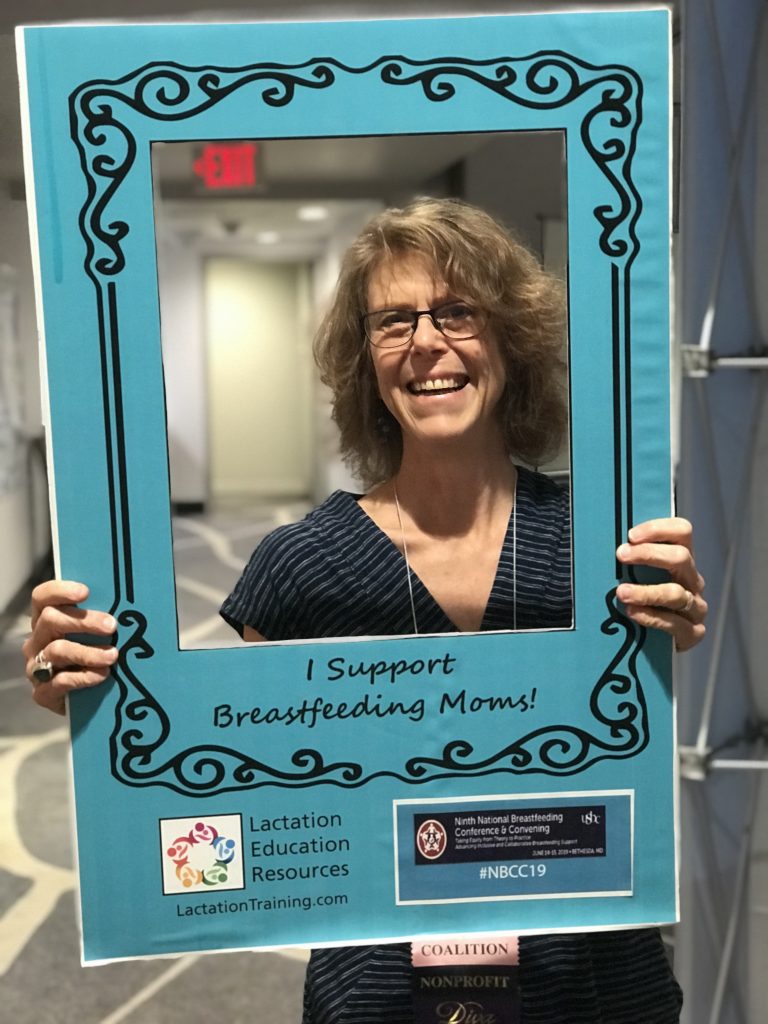
Leslie Lytle during conference break
This was my first time attending this conference. I was expecting good things: I’d seen presentations by USBC leadership at other conferences over the years, and knew they had made a commitment to fostering equity and inclusion within their organization. But I was blown away by the depth of that commitment, which was apparent in the community guidelines that were shared, in the diversity of the presenters, and in the overall structure and flow of the conference.
The theme of the conference was Taking Equity from Theory to Practice: Advancing Inclusive and Collaborative Breastfeeding Support, and it felt like they accomplished what they set out to do. People of color, multiple ethnic communities, and members of the LGBTQ community were centered again and again throughout the two days, from spoken word artist Charity Blackwell who opened the conference, to the Emerging Leader, Tribal Trailblazer, and Cultural Changemakers Awardees, to the closing presentation by a panel of black men, all credentialed lactation support providers.
Perhaps my favorite moment of the conference: Calvin Williams, a member of the Reaching Our Brothers Everywhere Leadership Team, singing out “and if I can’t crawl, I’ll roll my body around on the ground and hope that it’s going in the right direction!” That resonated deeply. Because sometimes working in the perinatal health feels like moving in the dark, and I just pray that maybe, just maybe I’m moving in a direction that makes a difference.
Multiple examples of collaborative, creative strategies to address the factors that hamper people’s ability to breast or chestfeed were presented. I was particularly inspired by the stories shared by the Cultural Changemakers Awardees: Carmen Cabrer, who helped families safely feed their babies in Puerto Rico through nearly a year without power; Rose Steele, who created sacred space for new parents within her Native American community in California; Tiffany Yang, a Hmong Minnesotan supporting breastfeeding within the Hmong community, and Lizabeth Berkeley and Rosalba Ruiz-Holguin, who are supporting breastfeeding on both sides of our border with Mexico. And there were so many more.
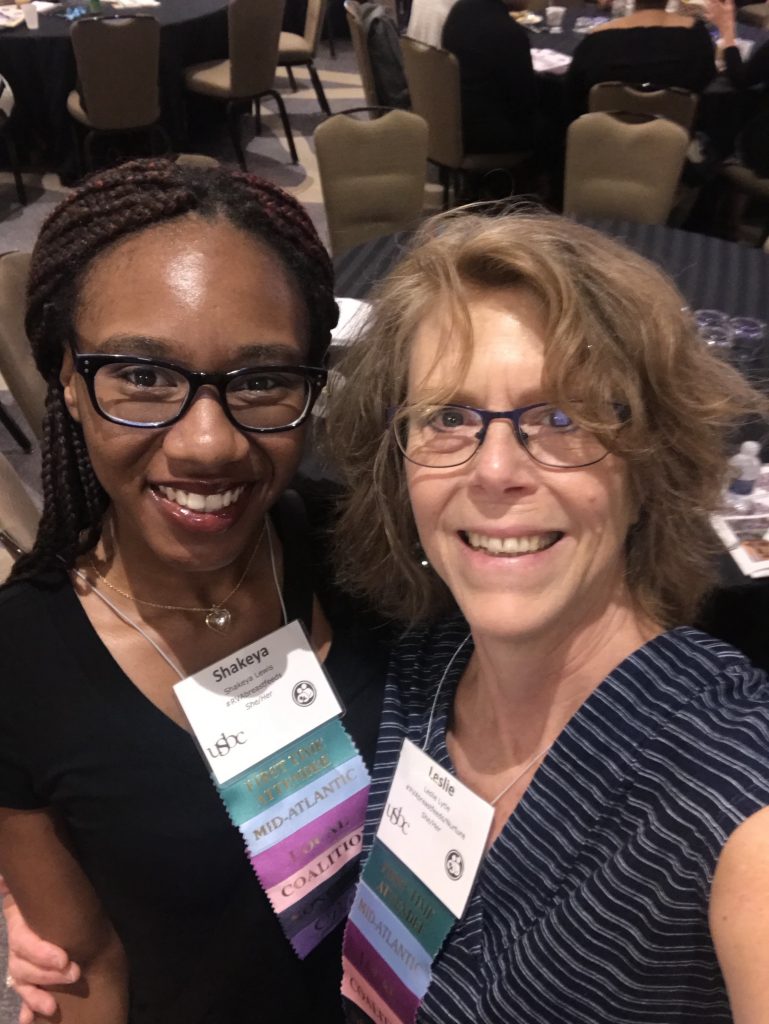
Shakeya & Leslie, the second day of the conference.
Some of the challenges we face here in Richmond were echoed in various presentations: lack of community and institutional support for breastfeeding, lack of funding, people and organizations working in silos. In a strange sort of way, hearing that the challenges are similar in other communities helped me feel not so alone. And learning how other communities are addressing these challenges sparked ideas for how we might address them here in Richmond.
In her presentation entitled: Building a Leaderful First Food Movement, Erika Stallings, of Leadership Learning Community, counseled us to “Pursue purpose, not perfection.” Hearing all these stories of “grassroots to treetops” efforts to support breastfeeding made for a powerful experience of collective impact in action. Though we might be operating different vehicles with varying capacities and speeds over constantly shifting terrains, it felt like everyone in the room was moving in the same direction. Unity in action.
And it was wonderful to have the opportunity to connect with other Virginia breastfeeding advocates – we even had an informal Virginia huddle at the end of the conference to share ideas and takeaways!
I returned home with renewed inspiration for collaboratively creating a local environment where our newest families can flourish. I am truly grateful for this experience.
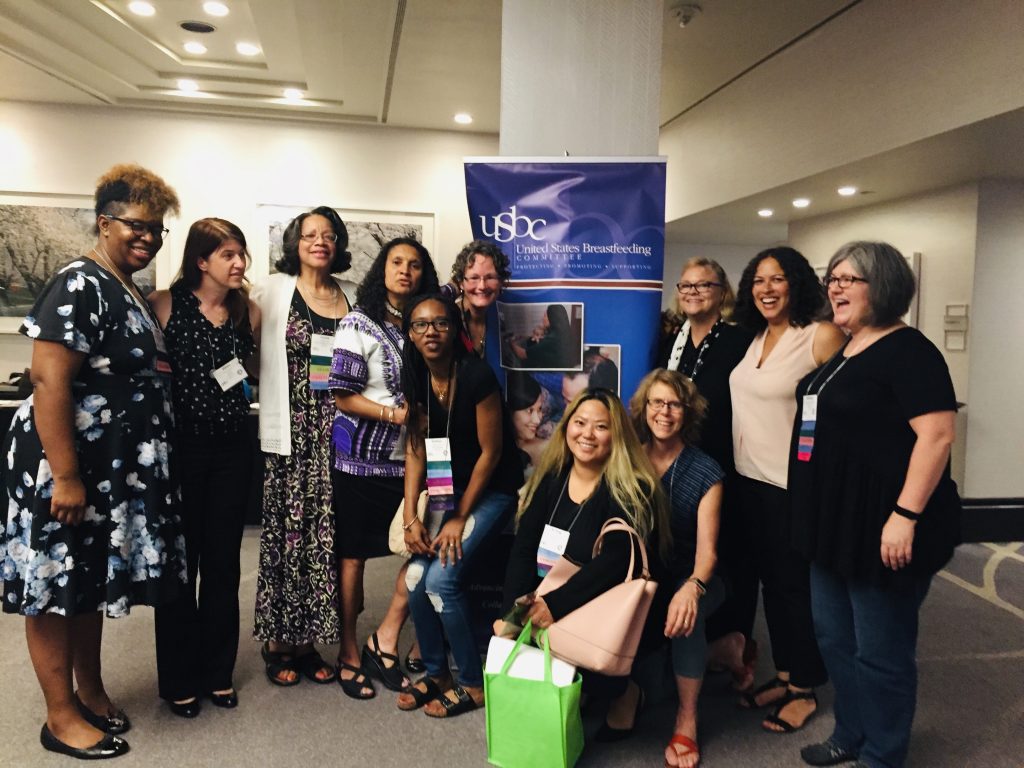
Virginia was well represented the National Breastfeeding Conference and Convening. At the beginning of the conference we attended a Mid-Atlantic Regional gathering to hear about challenges and successes in other states, and at the end we held a brief Virginia huddle to share our takeaways and aspirations.
